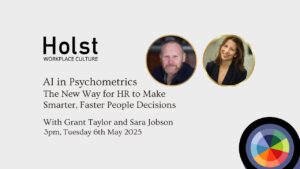
The concept of evolution has done a lot of damage to society. There are several component parts to the concept of evolution.
1 Spontaneous changes arise from time to time and grow into useful alternatives. The danger here is that we just sit back in the belief that new ideas have always arisen ‘from time to time’ and therefore there is nothing we can do about it. And nothing we need to do about it. On the contrary, deliberate and formal creativity can produce powerful effects and we do not simply have to sit back and wait for ‘spontaneous’ changes. 2 That entities continuously grow and progress so what we have today is the evolved perfection of ages. We also believe that these things (democracy etc.) will get better and better. This belief is totally contrary to the behaviour of self-organising systems which reach a state of ‘local equilibrium’ from which it is very difficult to budge them. There is no continued improvement. Many of today’s institutions are so obviously in such a bogged down state of local equilibrium and are crying out for change. Instead we have complacency and self-satisfaction. 3 The notion of ‘survival of the fittest’ suggests that what has survived and is now in use is necessarily the best from amongst part alternatives. Again this does not follow at all. There may be a temporary set of circumstances, and influences, which favour one alternative. This alternative develops and a better alternative is neglected. At the beginning of the century electric cars were better than petrol driven cars but there were no constituents to drive that design. There were no ecologists at the time. ‘Evolution’ is one of those background myths and metaphors which control our thinking. In this case evolution gives rise to tremendous complacency with things that could be much improved. After a talk to Ingwe Coal in South Africa, earlier this year, the senior engineer said that as a result of the seminar, they had just come up with a new way of cutting coal – the first new way in eighty years.Edward de Bono, 29th November 1999
 About the Author: Dr Edward de Bono is a world leading authority on thinking skills. Creator of the famous Six Thinking Hats ®, Lateral Thinking and many other workshops, he has authored over 80 books published in 35 languages.
Holst is Dr Edward de Bono’s partner in Europe. Click here for more information about Dr de Bono and his tools.
Learn to change how people think. Add Dr Edward de Bono’s tools to your portfolio & become a certified de Bono trainer.
[traininglist slug=”lateral-thinking”]
[traininglist slug=”six-thinking-hats-accreditation-3-days”]
[traininglist slug=”six-thinking-hats”]
[traininglist slug=”lateral-thinking-2-days”]
[traininglist slug=”power-of-perception”]
[traininglist slug=”power-of-perception-2-days”]
[traininglist slug=”focus-on-facilitation”]
]]>
About the Author: Dr Edward de Bono is a world leading authority on thinking skills. Creator of the famous Six Thinking Hats ®, Lateral Thinking and many other workshops, he has authored over 80 books published in 35 languages.
Holst is Dr Edward de Bono’s partner in Europe. Click here for more information about Dr de Bono and his tools.
Learn to change how people think. Add Dr Edward de Bono’s tools to your portfolio & become a certified de Bono trainer.
[traininglist slug=”lateral-thinking”]
[traininglist slug=”six-thinking-hats-accreditation-3-days”]
[traininglist slug=”six-thinking-hats”]
[traininglist slug=”lateral-thinking-2-days”]
[traininglist slug=”power-of-perception”]
[traininglist slug=”power-of-perception-2-days”]
[traininglist slug=”focus-on-facilitation”]
]]>





